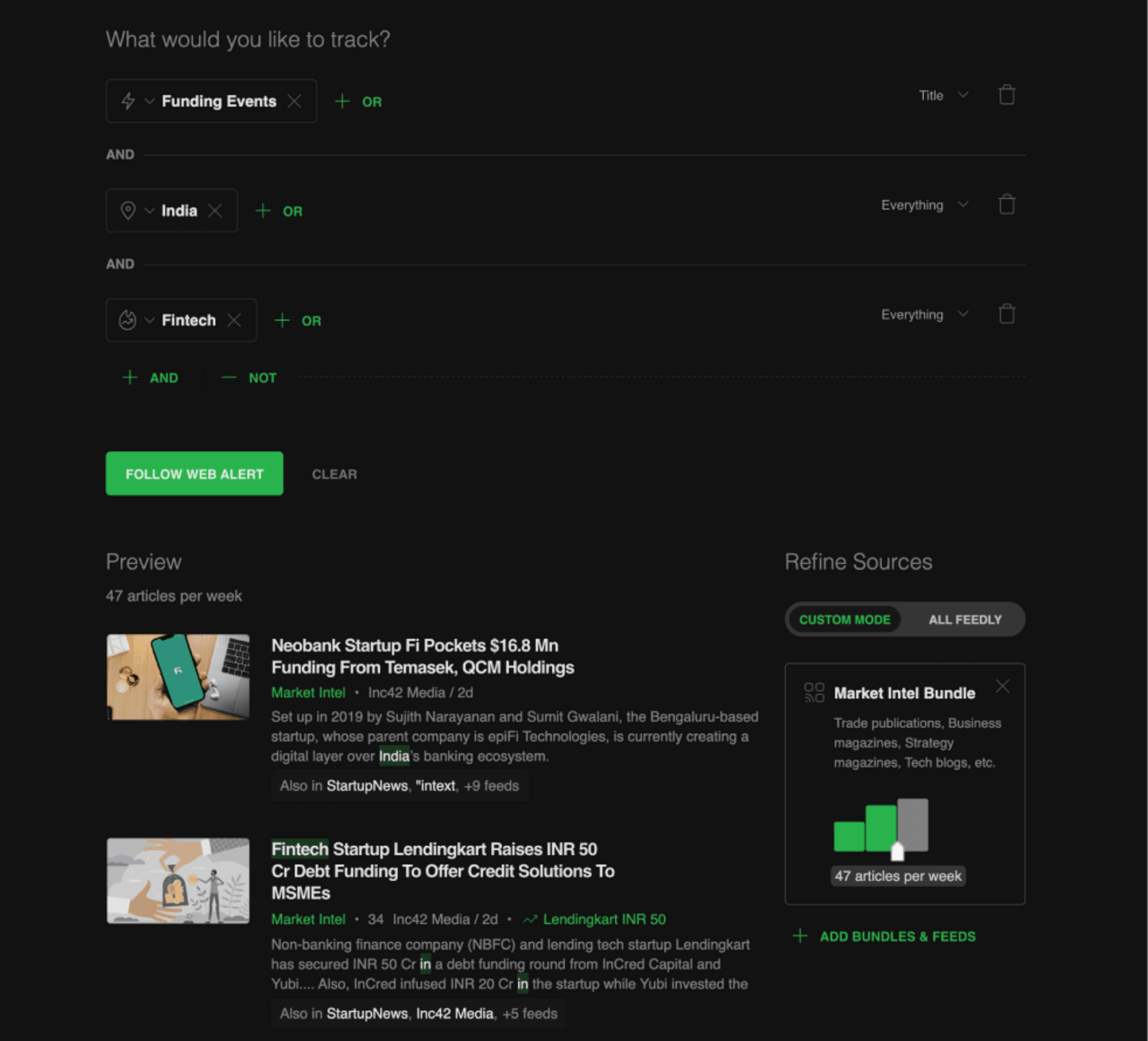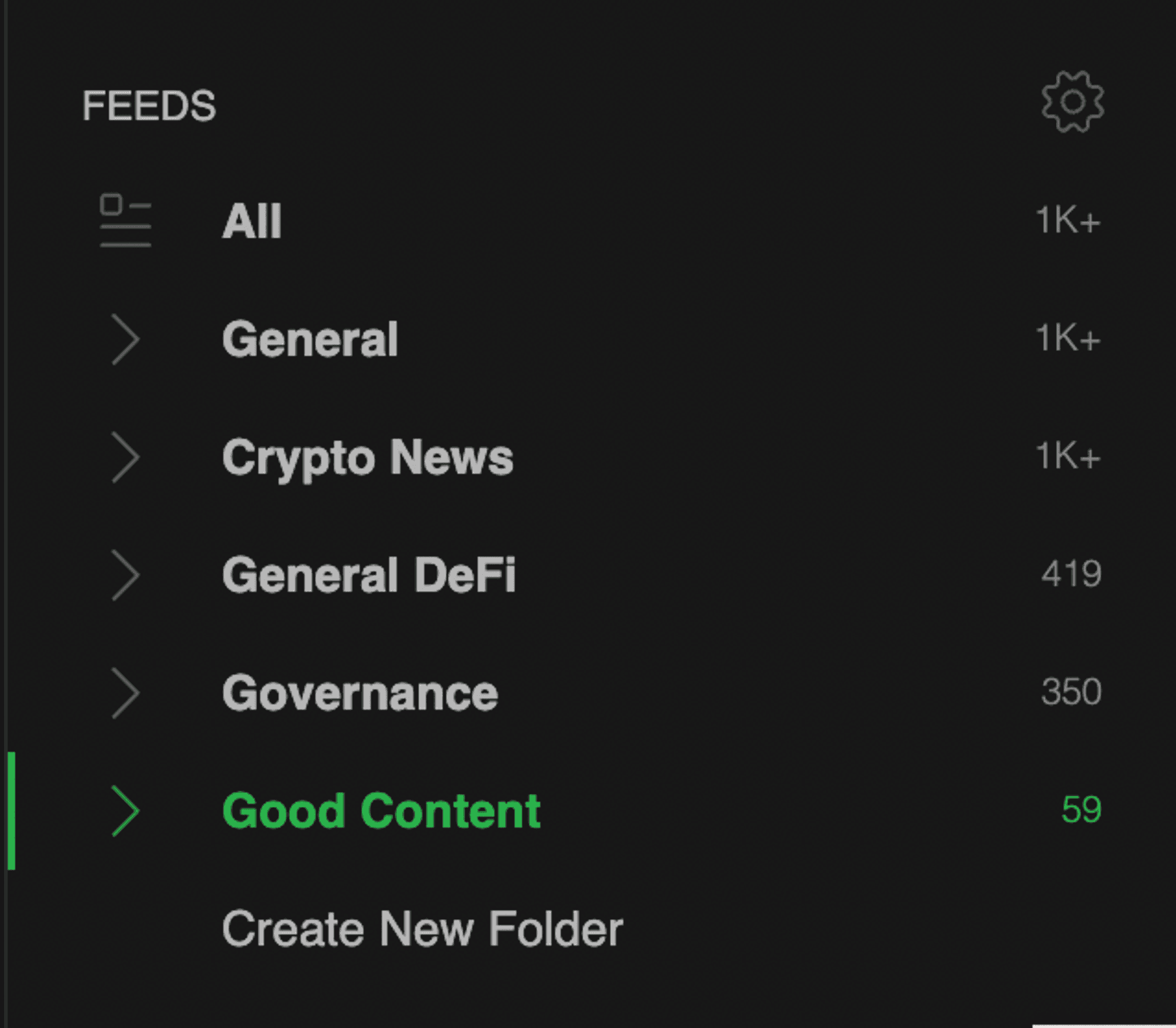- Published on
Feedly is the coolest way to track topics
- Authors

- Name
- Daksh
- @0xDaksh

As you become an active reader in Web3, Startups, and Technology, you realize that news sources are incredibly sparse. So you start using your Twitter follows as a filtering mechanism to find the most high-quality content across those industries. This method is not wrong and works for the most part, but when you find those high-quality sources, the problem becomes aggregation. So how do you aggregate these sources together so that you can have a list of readings available to you daily curated precisely the way you like?
One word, Feedly! Feedly is an excellent way to track insights across the web. It lets you make Feeds, which can be made up of news sites, blogs, Twitter, newsletters, and even sites that don’t have an RSS feed! But, this is not it; it also has a Machine Learning based engine that tracks topics across these websites and allows you to make feeds/alerts out of topics. You can also train (feed data to their algorithm) to filter out the noise and prioritize topics, events, and trends that matter to you.

The above is a screenshot of some of my feeds, and I use them each for specific kinds of posts that I want to track:
- General - Tech, Science, Business, and Culture magazines, which keep me updated with global events and topics that are being reported!
- Crypto News - Web3 Specific websites such as The Block, Decrypt, etc.
- General DeFi - DeFi related websites such as Bankless, Messari, DeFi Pulse, etc.
- Governance - Popular DAO governance forums such as MakerDAO, Lido, Curve, Aave, etc.
- Good Content - Farnam Street, PG, Sam Altman, Samo Burja, etc.
So no matter what my reading mood is, everything is covered to the most extent through these feeds, and I don’t explicitly have to try hard to track them!
The most exciting part about Feedly is still topic tracking; I will demonstrate that by an example.
Let’s say I want to track Fintech Startup Funding across Asia. For this, I need to filter out startup funding posts by location and industry respectively. In Feedly, it would quite literally look like this:
You can also use OR / NOT in the layers to do additional filtering and track deeper into the topics you’re curious about.
Isn’t this a powerful AF thing? It gives an exhilarating feeling when you try it for the first time, ha!